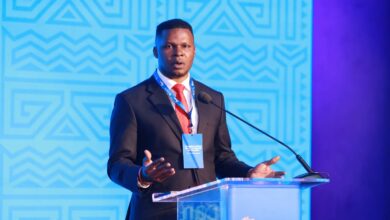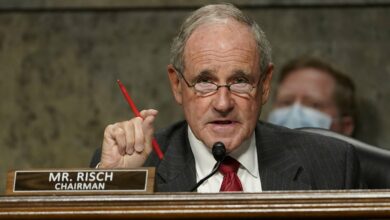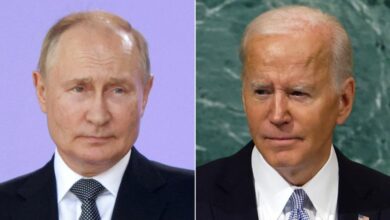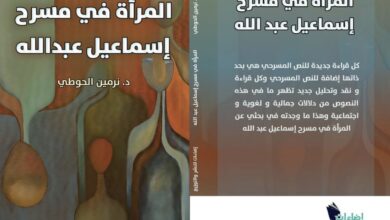M. Shafik Gabr is one of Egypt’s leading industrialists. Chairman of the Artoc Group for Investment and Development, Gabr, 57, holds a bachelor’s degree in economics and management from the American University in Cairo and a master’s degree in economics from the University of London.
He was a founder–and first president–of the American Chamber of Commerce in Egypt, and has been a decades-long proponent of close US-Egypt political and economic relations. Gabr sat down with Al-Masry Al-Youm at his corporate headquarters in Cairo’s Moqattam district after returning from Davos, Switzerland, where he attended the recent convention of the World Economic Forum (WEF).
Al-Masry Al-Youm: You recently returned from the WEF meetings in Davos. For how many years have you been attending the event?
Shafik Gabr: This was my 20th year. I began attending in 1990.
Al-Masry: Were there any surprises this year?
Gabr: Last year, half the participants were very much in denial over the financial and economic crisis, while the other half were very much in panic. This year, the sense is that half the participants want to return to the pre-financial crisis period as soon as possible and by any means, while the other half are more or less taking a wait-and-see attitude.
There is a feeling that the crisis is not over and there are going to be a number of repercussions that people, unfortunately, aren’t addressing. There is a deep sense that issues needed to correct what happened have not been put in place until now. There is a sense of huge sovereign debt that is coming up for refinancing. There is a question of the serious lack of transparency–this was confirmed recently in a report on the Greek economy.
Al-Masry: The crisis has hit Greece particularly hard, hasn’t it?
Gabr: If you read in yesterday’s Herald Tribune, there’s a report that Goldman Sachs, while acting as an adviser to the Greek government, utilized irregular accounting methodology to show loans as currency transactions. If it has really reached this stage, there needs to be a call to the International Monetary Fund and the G20 [group of industrial nations] that such things need to be addressed head on. The longer these things aren’t addressed head on, the more we’re going to face, unfortunately, a very complicated recovery.
Al-Masry: Do you feel there’s a lack of political will to address the issues in question?
Gabr: I don’t believe that, up until now, these issues have been addressed openly. The only thing to have been addressed is ways to deal with the crisis. You’ve seen bailouts, stimulus packages, different attempts to save different organizations and countries. However, people haven’t sat down and said, "These steps need to be taken to correct what happened before, and these countries have huge sovereign debts that they need to find ways to refinance–and accounting transparency needs to come to the forefront."
All these issues have not truly happened. You have certain attempts to make it happen…there are certain people talking about these issues. But has there been a deep intellectual discussion and debate about what’s really going on?
You hear it now and then–some voices in the media. But nobody has answered the simple question: Why should banking institutions be allowed to trade using their depositors’ money, which is guaranteed by the government? Therefore, there is no down-risk, but there is all the up-risk. Investment banks that take high risks should be separated from commercial banks. That’s one of many issues that needs to be addressed.
Can you believe this crisis has been going on since 2008? It’s 2010 and we’re still talking about it. Nothing has happened.
Al-Masry: Have national governments taken effective steps to stimulate recovery?
Gabr: I call this firefighting–but nothing serious, technically, that can truly correct the mistakes of the past.
Al-Masry: How has Egypt weathered the crisis? And what do you see for the future of Egypt’s economy?
Gabr: The Egyptian economy faced its banking crisis in 2000, when there were non-performing loans and we had easy and cheap credit. So we dealt with all those loopholes back then. We have been in a lucky situation, where the Central Bank of Egypt set very strict regulations and monitored their implementation very carefully.
Therefore, the impact of the financial crisis on Egypt has one positive aspect and one negative aspect. The positive aspect is that we did not have a situation where we were trading and leveraging and utilizing instruments such as the western banking institutions were. But the negative side is that Egypt is going to be impacted regardless, because you have a contraction of trade and a contraction of exports. You have a contraction of the global economy as a whole.
We’ve witnessed the growth rate of Egypt decline. So while we don’t see similar symptoms of the financial crisis, we do see an impact on the economy itself.
Al-Masry: Minister of Trade and Industry Rachid Mohamed Rachid sounded optimistic in Davos, predicting five percent growth rates within a year or two. Finance Minister Youssef Boutros-Ghali, for his part, had earlier predicted economic growth rates of up to eight percent in the near future. Do you share their optimism?
Gabr: That’s great. Sounding optimistic is great and it’s something that is very admirable. But Minister Rachid and Minister Boutros-Ghali don’t have control over the global economy–and the contraction of the global economy is going to impact Egypt.
What the government needs to do is make Egypt a business-friendly environment by reducing bureaucracy, the cost of doing business and any obstacles to investment–both Egyptian and foreign–so as to be able to regain the investment numbers that we hade back in 2006 and 2007, which have unfortunately declined.
Al-Masry: What are the local economy’s biggest strengths and weaknesses?
Gabr: The biggest strength of the Egyptian economy is two things. Firstly, diversification, since Egypt’s GDP comes from five or six key components, not only one component like many other economies based only on energy or tourism. Egypt has 20 percent of its income coming from agriculture; 15 percent from industry; 20 percent from tourism; and ten percent from financial institutions. It’s very diversified.
The second strength of the Egyptian economy is its middle class. The middle class is growing and its economic situation is definitely improving.
The weaknesses of the Egyptian economy, meanwhile, include a still-complicated bureaucracy that needs to be streamlined and improved, and the level of poverty that needs to be addressed–along with the improvement of the skills of its labor force, which needs to be addressed through the educational system.
Al-Masry: You’ve spoken before of Egypt’s “skills deficit.” Is this something that’s holding the country back in your view?
Gabr: That’s the paramount question that needs to be addressed on a political, economic and social level. For many, many years, the unwritten social contract in Egypt was that you had subsidized services, education, health, and transportation. You were guaranteed a job by the government and basically everything was great.
We have not changed this social contract that was established back in the 1950s. Today’s social contact, from my own personal perspective, needs to be based on competition. We are living in an age of globalization. We need to compete. Egypt needs to regain its position in the global economy.
Therefore, it’s not enough that Egypt is better today than it was yesterday. Egypt today should be better than other economies that we’re competing with–in terms of services, products, research and development, technology and innovation.
That new social contract has not been put forward–neither politically nor economically. And, coupled with the mismatch between what is coming from the educational institutions and the demands of the market, we’re facing–unfortunately–a problem. We have people coming out of universities or training institutes that have been trained or educated–from my perspective–in a manner based on the old social contract, not based on competition, new technologies or future needs.
So many institutions are looking for people and aren’t finding the right labor, while many laborers go without finding jobs. So this paradox exists.
Egypt is a very special country in the Arab world because it’s the only country to have 85 percent of its economy accounted for by the private sector. Eighty-five percent of Egypt’s GDP is created by the private sector; 70 percent of Egyptian employment is created by the private sector–unlike countries such as Kuwait, Saudi Arabia and Dubai, some 90 percent of whose GDP comes from the government.
So really, the private sector in Egypt should be working very closely with the government to create an environment for the right labor training and the right educational system.
Al-Masry: Are private-sector employers frustrated by the current state of affairs?
Gabr: Definitely.
Al-Masry: Is it a question of the right skills? Or of the right mentality?
Gabr: It’s a question of skills, mentality, work ethics. Unless we face it, we’re not going to fix it. We take a significant number of public holidays. We have a very laid-back attitude. Egypt needs to work seven days a week if we’re going to compete with countries that we were way ahead of before.
Egypt was way ahead of South Korea; Egypt was ahead of Greece. People from Italy used to come to Egypt to work. People from Greece used to come and invest and work in Egypt. Egypt was a country that exported its white- and blue-collar workers to all of the Arab world. It was Egypt that was sending people to the Gulf and to Syria and to Lebanon and North Africa. We were the ones who were setting their institutions up.
That, unfortunately, has all disappeared. We need to regain that.
Al-Masry: Does Egypt still suffer from so-called "brain drain"?
Gabr: Not like we used to in the old days. But I’ll tell you something very interesting: If you look at repatriations by Egyptians living abroad, the biggest number isn’t coming back from the Gulf–it’s coming back from the United States and North America.
The reason is that, when Egyptians go abroad, they excel when the environment allows them to. They excel on an individual basis and on a team basis. They not only excel, they even win Nobel Prizes. We have a lot of examples. Why are we not encouraging this? There’s one thing about Egyptians: They’re very attached to their home country. Therefore, if they succeed outside, they will come back, given an opportunity. We should encourage people to become our strongest asset.
Al-Masry: You were very public in your excitement over US President Barack Obama’s election and his speech in Cairo. Are you still as optimistic as you were a year ago?
Gabr: No. I am very concerned. And my concern comes from a belief that when time and opportunity cross, the chances of success are very high.
When President Obama came in June of 2009, he was able to change the landscape of the Arab and Muslim world in eight hours where President Bush unfortunately created a huge gap in eight years. When you do something like that, it is so important to be able to deliver, because when you don’t deliver your credibility unfortunately is damaged. Since that speech, until today, there have not been any deliverables.
For example, on the Israeli-Palestinian issue, I think it was a huge mistake for the American administration to start dealing with the settlements issue. The minute you start dealing on side issues, you get bogged down.
What was extremely intelligent of the Carter administration was that when he brought Egypt and Israel to the table, he had a full plan and then they negotiated the plan.
We all know 95 percent of the solution between the Palestinians and the Israelis. They should have put a comprehensive plan on the table, then negotiated the remaining five percent, and this is what I still call on the United States to do.
Al-Masry: Let’s turn to local politics. Are you a member of a political party?
Gabr: I am a member of the National Democratic Party.
Al-Masry: Obviously we’re heading into an interesting stretch with parliamentary elections this year and presidential elections next year. I wrote an article last week about "ElBaradei-mania" on how everybody’s going crazy for Mohamed ElBaradei. It has become a very curious phenomenon in that people don’t know anything about this guy other than his CV. They don’t know anything about (Nobel Prize winner) Ahmed Zeweil either, but they talk about him for president as well. What does this indicate to you? Is it just because multi-candidate elections are a new toy for people to play with?
Gabr: I think it was a very wise decision by President Mubarak to create multi-candidate elections.
I am not learned enough to talk about the constitutional aspects of it, but I think the principle itself should be applauded. I think what people have found is "All right, we’ll have multi-candidate elections, but who are the people?"
Therefore, people start looking at names with a global reputation. So you hear about Amr Moussa, Ahmed Zeweil and Mohamed ElBaradei. I remember personally hearing the president say in the last elections, "I want to go against people and win credibly." I think he was very supportive of the system.
Now you and I know that it takes years to create political leadership. It doesn’t happen overnight. You need to get known, you go into institutions, become a member of parliament or the senate, and then you run for president.
But because there has been a vacuum, when these names have come out, you hear all this hype. I think it’s healthy. I think it’s a process that Egypt is going to go through.
Al-Masry: We’ll end with a fun one for you. You’re renowned for your collection of Orientalist art. What started your interest in that field?
Gabr: I have a passion for Orientalist art because I admire people who carried their canvasses and paint and came to Egypt in the early 1800s to discover, to learn to speak Arabic. Some of them even changed their religion and went to Mecca. I call these people early globalists.
I’m talking about the people who visited and painted what they saw. I’m not talking about the people who sat in their studios in Paris or Rome and dreamed up certain scenes. I’ve researched all the painters I’ve collected. They came, they lived here, they had their atelier (studio) here. They returned to their countries, sold their paintings, and came back again.
Some of them dressed like the natives of these countries. Some of them learned the customs. This was at a time when it used to take months to come here. There was no telephones, no television, no satellite, no email.
That they did all this is a recognition of East-West relations. Personally, I like building bridges between East and West. I think it’s important for people to understand each other. So I admire these people and that’s why I have always supported the genre.
Al-Masry: Is it something you get strange reactions to? For better or worse, Orientalism has become a derogatory term.
Gabr: I think it became a derogatory term because of misinformation. It became a derogatory term because people did not reconcile with their past.
The main attack on Orientalism is from people who say these painters showed the Arab world in a bad way. Many of the people who did that were studio painters who painted naked women and harems and whatever. That to me is like someone sitting abroad who knows nothing about Islam and writing about Islam. That doesn’t make everyone who writes about Islam bad.




